Find Help
More Items From Ergsy search
-
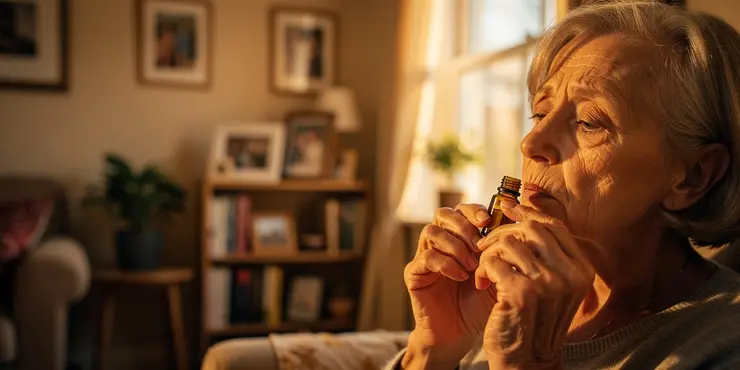
Poor sense of smell in the elderly linked with higher risk of dying | NHS Behind the Headlines
Relevance: 100%
-

What populations are at higher risk for E. coli infections?
Relevance: 29%
-
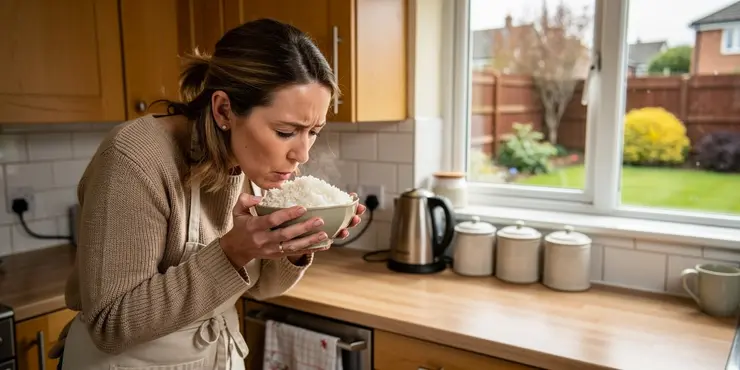
Can I smell bacteria in rice?
Relevance: 27%
-
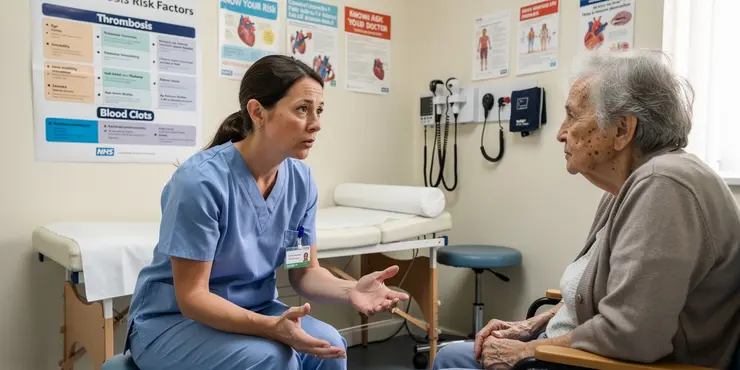
Who is at higher risk for thrombosis?
Relevance: 26%
-
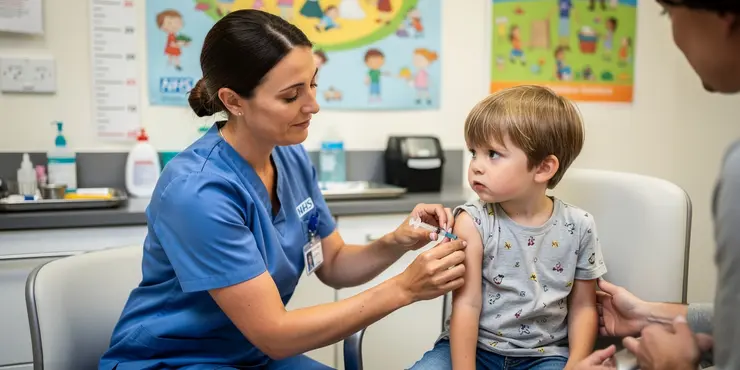
Who is at higher risk of contracting meningitis?
Relevance: 25%
-

Are there any countries at higher risk for Marburg virus outbreaks?
Relevance: 23%
-
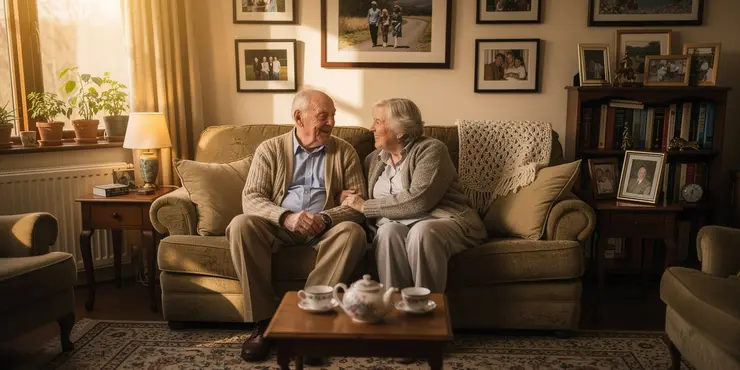
Why are elder individuals often targeted by scammers?
Relevance: 23%
-

What professions are at higher risk of methanol exposure?
Relevance: 20%
-
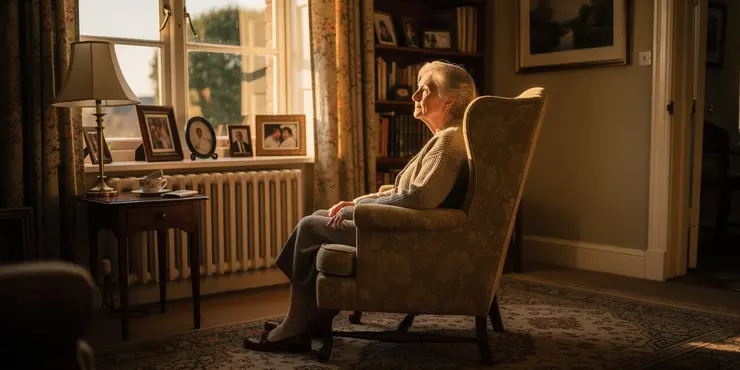
UK's Elderly Population Faces Growing Loneliness Crisis
Relevance: 20%
-
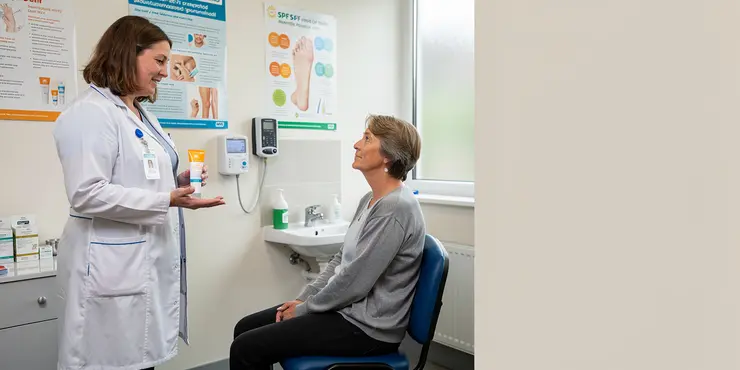
Is a higher SPF always better?
Relevance: 20%
-
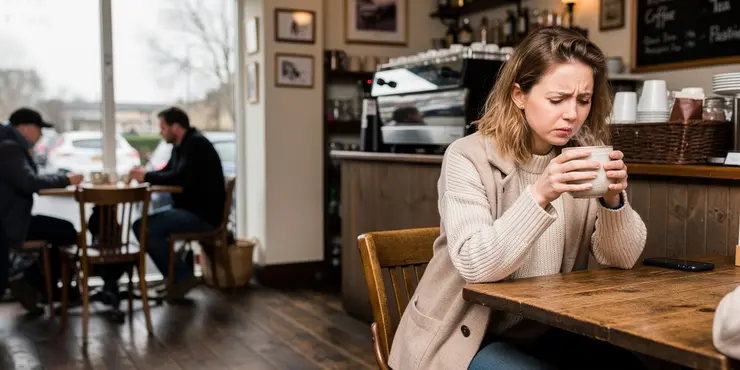
Can I taste or smell if my drink has been spiked?
Relevance: 20%
-

How do charity scams exploit the elderly?
Relevance: 19%
-
Information on scams and fraud that targets the elderly.
Relevance: 19%
-
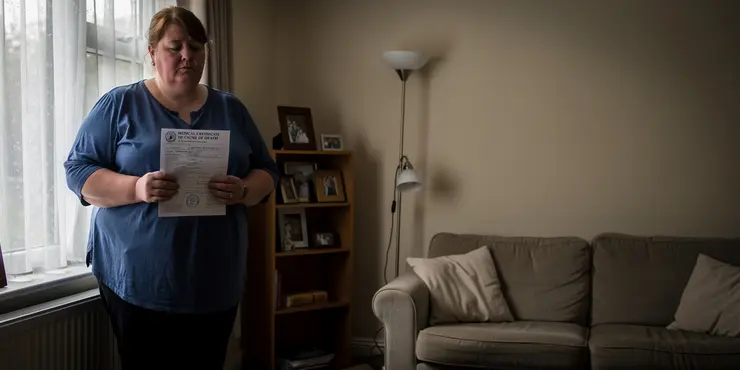
What to do when someone dies
Relevance: 19%
-

UK Study Links Poor Air Quality to Increased Asthma Cases in Urban Areas
Relevance: 19%
-
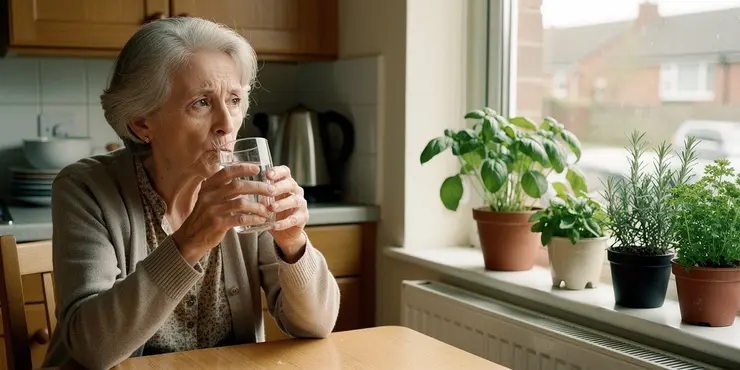
How does dehydration affect gut health in the elderly?
Relevance: 19%
-
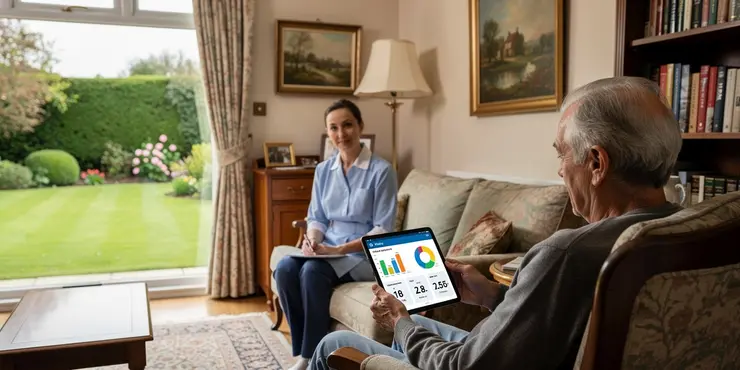
Are virtual wards suitable for elderly patients?
Relevance: 18%
-

How does decreased reaction time affect elderly drivers?
Relevance: 18%
-
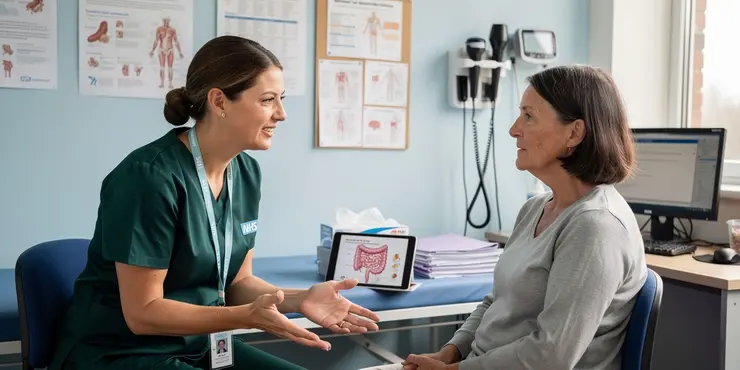
What are some signs of poor gut health?
Relevance: 18%
-
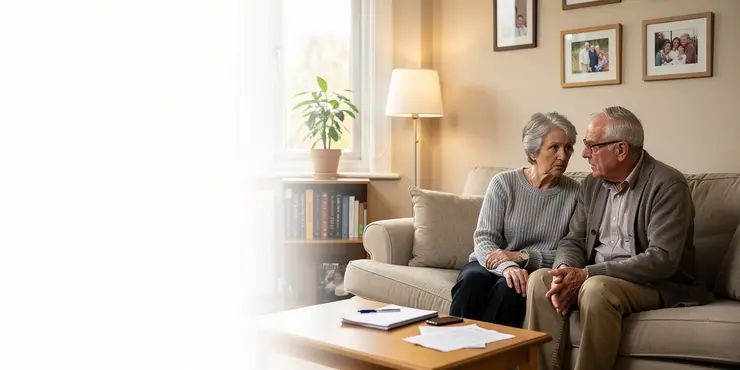
How can the elderly protect themselves from scams?
Relevance: 17%
-
Is it better to choose a higher deductible for lower premiums?
Relevance: 17%
-
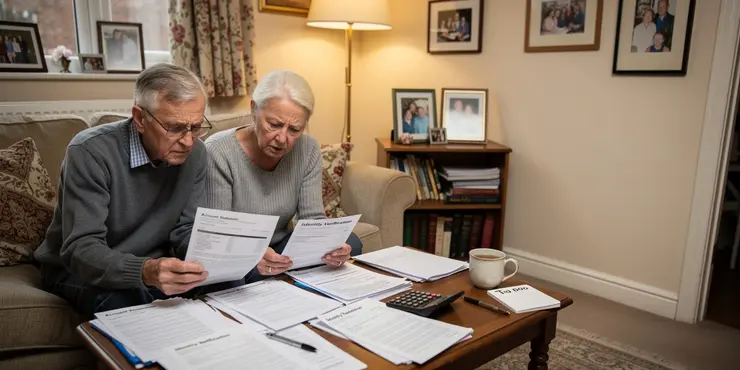
What is identity theft and how does it affect the elderly?
Relevance: 17%
-

Who is at risk for severe Chikungunya infection?
Relevance: 16%
-

Innovative App Aims to Combat Loneliness Among Elderly
Relevance: 16%
-
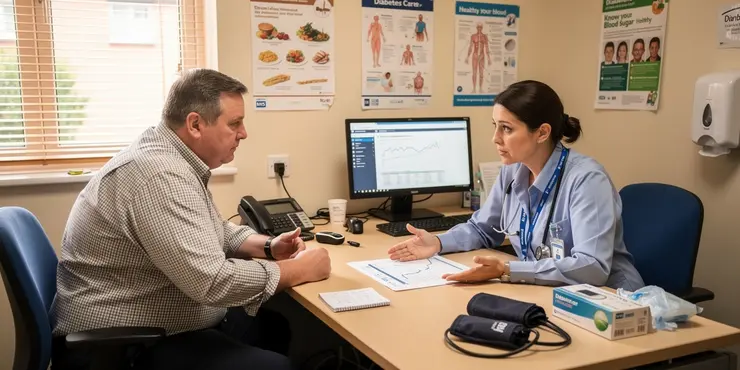
Who is at risk for flesh-eating disease?
Relevance: 16%
-
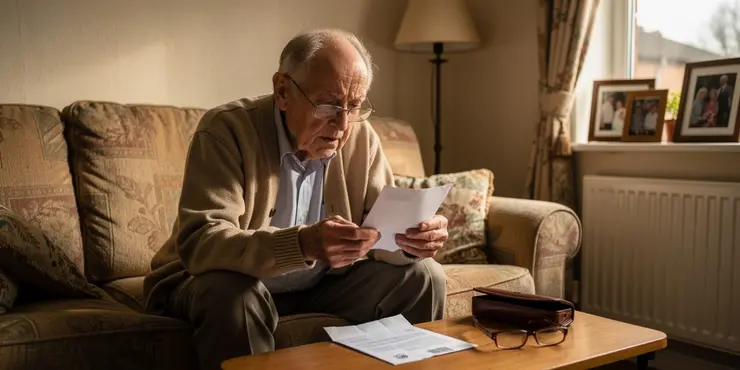
What are common scams that target the elderly?
Relevance: 16%
-
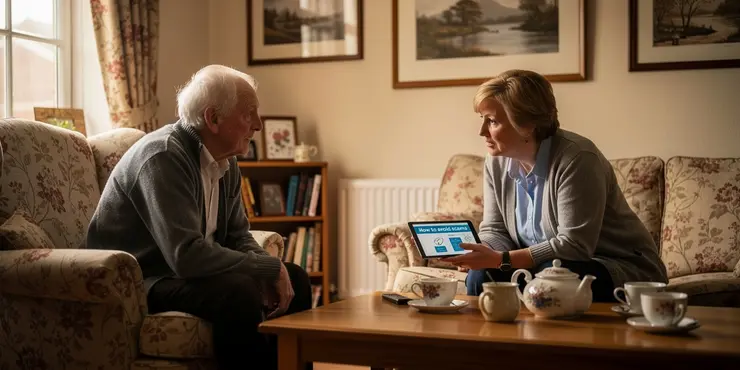
What steps can I take to help an elderly loved one avoid scams?
Relevance: 15%
-
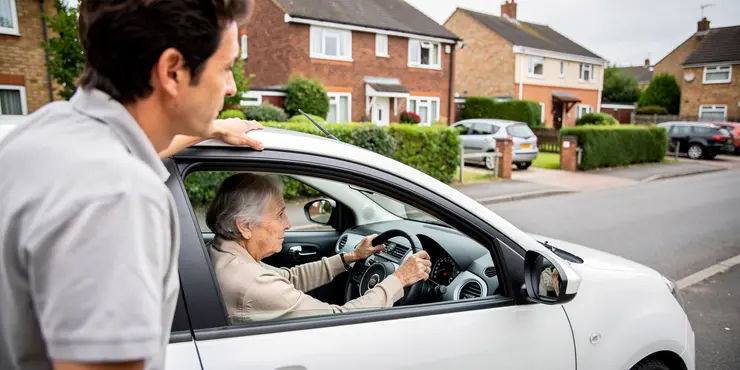
How can family members help assess an elderly person's driving ability?
Relevance: 15%
-
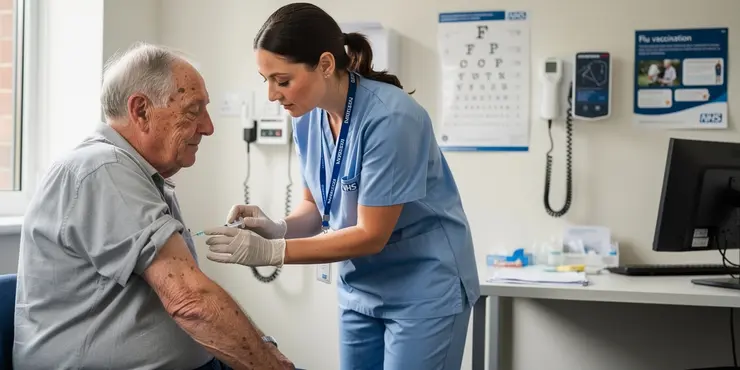
Are certain populations more at risk during the 2026 flu season?
Relevance: 14%
-

How much water is lost in the UK through poor infrastructure?
Relevance: 14%
-
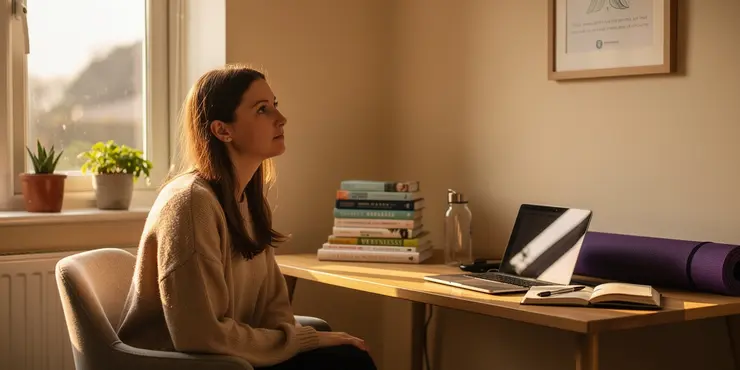
Who is at risk of developing chronic fatigue syndrome?
Relevance: 14%
-
What are the risk factors for a heart attack?
Relevance: 14%
-
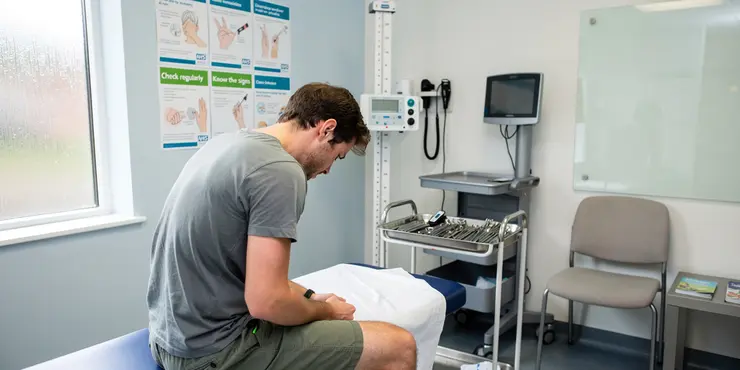
Who is at risk for testicular cancer?
Relevance: 14%
-
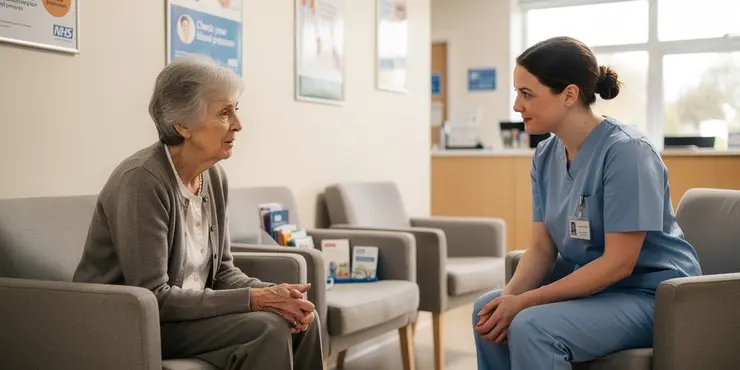
How does Medicare fraud target the elderly?
Relevance: 14%
-

How and when do I pay Inheritance Tax when someone has died?
Relevance: 14%
-
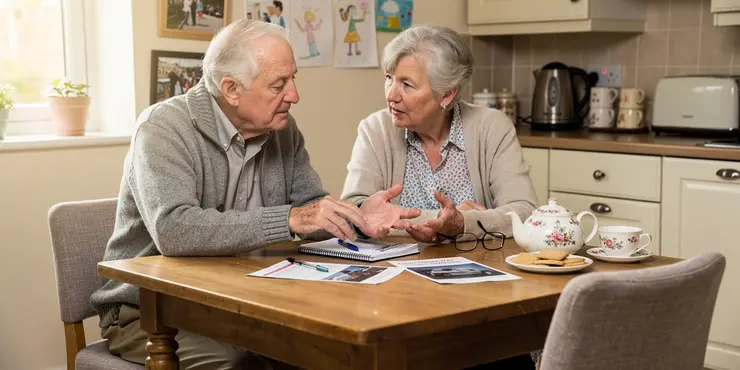
What are the risks of driving after 70?
Relevance: 14%
-
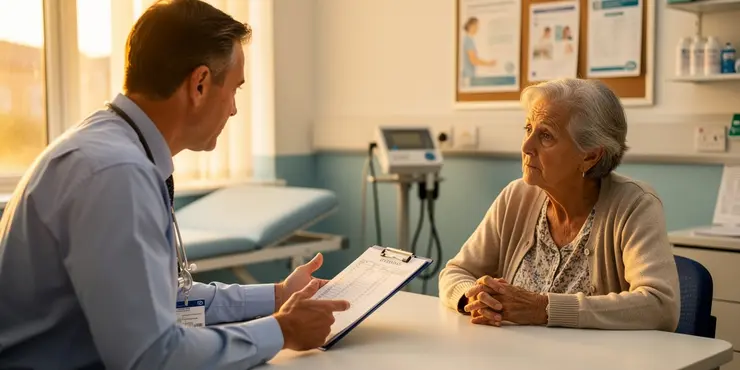
Who is at risk for severe illness from West Nile Virus?
Relevance: 14%
-

Which countries have higher rates of measles?
Relevance: 14%
-
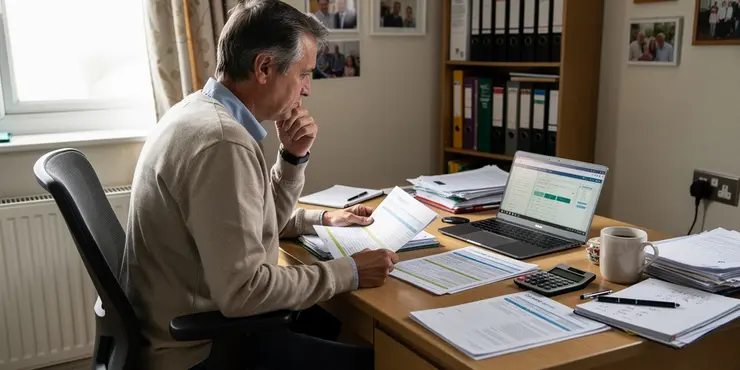
What are the risks of self-managing my pension without advice?
Relevance: 13%
-

Who is at risk of developing shingles?
Relevance: 13%
Poor Sense of Smell in the Elderly Linked with Higher Risk of Dying
Introduction
Recent research has uncovered a concerning link between a poor sense of smell and an increased risk of mortality in elderly individuals. This insight adds to the growing body of evidence that sensory impairments can be significant predictors of health outcomes. The findings are particularly relevant to the healthcare landscape in the United Kingdom, where an aging population presents unique challenges to the NHS.
The Study and Its Findings
The study, conducted by researchers in the United States and published in the scientific journal Annals of Internal Medicine, involved over 2,000 participants aged between 71 and 82. The participants’ sense of smell was assessed using a standardized test, and the participants were then monitored over a period of about 10 years. The results revealed that those with the poorest sense of smell had a 46% higher risk of dying compared to those with a good sense of smell.
Why is Sense of Smell Important?
The sense of smell, or olfaction, plays a significant role in daily life, from detecting hazards such as smoke and spoiled food to enhancing the enjoyment of meals. Deterioration in this sense can lead to practical challenges and a reduced quality of life. Poor olfaction has been associated with nutrition deficits, weight loss, and even mental health issues such as depression and anxiety, which can all contribute to an increased risk of mortality.
Implications for the NHS and Elderly Care
The findings of this study could have important implications for the NHS and elderly care services in the UK. Recognizing a poor sense of smell as a potential indicator of declining health could lead to earlier interventions and improve health outcomes for elderly individuals. Routine screening for sensory impairments could become a valuable tool in the arsenal of geriatric care, improving patient monitoring and prompting timely medical or lifestyle interventions.
Conclusion
As the UK’s population continues to age, understanding the multi-faceted aspects of elderly health becomes increasingly critical. The link between poor sense of smell and higher mortality risk highlights the need for comprehensive health strategies that include sensory assessments. By incorporating these findings into routine health checks, the NHS can better address the complex needs of the elderly and work towards improved outcomes and extended longevity.
Smell Problems in Older People Linked to Higher Death Risk
Introduction
New research shows that older people with a bad sense of smell might have a higher chance of dying. This means that when older people cannot smell well, it could be a sign of health problems. This is important for the UK's health services because there are many older people.
The Study and Its Findings
Researchers in the United States studied over 2,000 people aged 71 to 82. They tested how well these people could smell. Then they watched them for about 10 years. They found that people with the worst sense of smell had a 46% higher risk of dying than those with a good sense of smell.
Why is Sense of Smell Important?
Smell helps us in many ways. It warns us about danger, like smoke or bad food. It also makes food taste better. If someone cannot smell well, it can make life harder. They might eat less, lose weight, or feel sad and worried. All these problems can make them more likely to die.
Implications for the NHS and Elderly Care
This study could be important for UK's health services. If doctors know that a bad sense of smell is a sign of health issues, they can help people sooner. Checking smell could be a regular part of care for older people. This can help spot problems early and improve health care.
Conclusion
The UK has many older people, so understanding their health needs is very important. Knowing that a bad sense of smell can be linked to death risk means doctors need to check it regularly. By doing so, the NHS can help older people live longer and healthier lives.
Frequently Asked Questions
What is the main finding of the study regarding the sense of smell in the elderly?
The study found that a poor sense of smell in the elderly is linked with a higher risk of dying.
Who conducted the study on the sense of smell and mortality risk?
The study was conducted by researchers whose findings were reported by the NHS in their 'Behind the Headlines' section.
How is a poor sense of smell defined in the study?
A poor sense of smell is defined as a reduced ability to detect and identify common odours.
What age group does the study focus on?
The study focuses on elderly individuals, particularly those aged 70 and older.
How does a poor sense of smell increase the risk of dying?
The exact reasons are not fully understood, but it is believed that a poor sense of smell could be an early indicator of declining overall health or underlying health issues.
Is a poor sense of smell a direct cause of increased mortality?
No, a poor sense of smell is not a direct cause of increased mortality, but it is associated with an elevated risk.
Should elderly individuals be concerned if they notice a decline in their sense of smell?
Yes, a decline in the sense of smell should be discussed with a healthcare professional as it could indicate underlying health issues.
Can a poor sense of smell be improved?
In some cases, a poor sense of smell can be improved by addressing underlying health problems, but it may not always be possible to restore it fully.
What should I do if I am worried about an elderly relative's sense of smell?
Encourage them to see their GP or a healthcare professional to discuss any concerns and undergo a health check.
Are there other conditions linked to a poor sense of smell?
Yes, a poor sense of smell can be associated with neurological conditions such as Parkinson's disease and Alzheimer's disease.
What can elderly people do to maintain a good sense of smell?
Maintaining good overall health through a balanced diet, regular exercise, and avoiding smoking and excessive alcohol consumption can help support a good sense of smell.
Does a poor sense of smell affect everyday life?
Yes, a poor sense of smell can impact daily activities such as detecting spoiled food, enjoying meals, and sensing danger such as smoke or gas leaks.
Is there a test to measure the sense of smell?
Yes, healthcare professionals can conduct olfactory function tests to assess a person's sense of smell.
Should a poor sense of smell be regularly monitored in the elderly?
Yes, it is advisable to monitor changes in the sense of smell, especially in older adults, as part of regular health check-ups.
What is the takeaway message from the NHS 'Behind the Headlines' report on sense of smell and mortality?
The key message is that a poor sense of smell in the elderly is associated with a higher risk of mortality, highlighting the importance of addressing and monitoring sensory health in older adults.
What did the study find about how older people smell things?
Older people who can't smell well have a bigger chance of dying sooner.
Who did the study about smell and risk of dying?
A group of researchers did a study. Their results were shared by the NHS in an area called 'Behind the Headlines'.
What does 'poor sense of smell' mean in the study?
The study explains what "poor sense of smell" is.
Here are ways to help understand:
- Use pictures to show smells.
- Ask someone to help explain.
If you can't smell things very well, it means you have trouble noticing and naming different smells.
Who are the people studied in the research?
This question is asking about the age of the people in the study. Is the research about children, teenagers, or adults?
You can use pictures to help understand. Or ask someone to explain the words.
The study looks at older people, especially those who are 70 years old and up.
How Can a Bad Sense of Smell Make You Sick?
We don't know all the reasons why yet. But if you can't smell well, it might mean your health isn't good or there is something wrong with your health.
Does having a bad sense of smell cause people to die sooner?
Some people cannot smell very well. Does this mean they might die sooner?
If reading is difficult, try these if you want help:
- Ask someone to read with you.
- Use a reading app or tool that reads the words out loud.
- Take your time and read slowly.
No, having a bad sense of smell does not directly cause you to die sooner. But, it is linked to a higher chance of health problems.
Should older people worry if they can't smell things as well?
If you can't smell things as well as you used to, talk to a doctor. It might mean something is wrong with your health.
Can you make your sense of smell better?
Do you want to smell things better? Sometimes, people can't smell well. There are some things you can try to help:
- Practice Smelling: Try to smell different things like flowers or spices. This can help your nose.
- Ask a Doctor: Doctors can help if your nose is not working well. They know what to do.
- Be Healthy: Eating well, sleeping enough, and exercising can help your body and your nose work better.
Ask someone for help if you find it hard. They can read with you or explain things in a simple way.
Sometimes, if you can't smell well, fixing health problems might help. But it might not always make your smell better completely.
What to Do if You Are Worried About an Older Family Member's Sense of Smell
Are you worried because an older family member can't smell things well? Here are some steps to help:
- Talk to them. Ask if they have noticed any changes in their sense of smell.
- Suggest visiting a doctor. A doctor can check why this is happening.
- Make a list of things they can't smell anymore. This can help the doctor understand the problem better.
- Help them be safe at home. Make sure there are smoke and gas alarms to protect them.
- Be supportive. Remind them you're there to help.
These tools can help:
- Simple lists to keep track of changes.
- Apps or calendars to remember doctor visits.
Tell them to visit their doctor or nurse. They can talk about any worries they have and get a health check-up.
Can a bad sense of smell be linked to other health problems?
If you can't smell well, it might be linked to other health problems. Here are some things that can help:
- Talk to a doctor for advice.
- Use picture charts to understand how smell works.
- Try smell exercises to improve your sense of smell.
- Listen to audio guides about the sense of smell.
Yes, having a weak sense of smell can be linked to brain problems like Parkinson's disease and Alzheimer's disease.
How can older people keep their sense of smell strong?
When you get older, your sense of smell might change.
Here are some ways to help keep it strong:
- Healthy Eating: Eat fruits and vegetables every day.
- Exercise: Move your body. Go for a walk or do stretches.
- No Smoking: Do not smoke. Smoking can hurt your sense of smell.
- Check-ups: Visit the doctor regularly for check-ups.
- Stay Clean: Make sure your nose is clear by blowing it gently.
Tools like a calendar can remind you to exercise and eat well every day!
To keep your body healthy, you can do some simple things:
- Eat a mix of good foods. This means eating some fruits, vegetables, and other healthy foods.
- Move your body often. You can go for a walk, play, or do a sport.
- Don’t smoke. Smoking is bad for your body.
- Don’t drink too much alcohol. Too much can make you feel bad.
Doing these things can help you keep a good sense of smell.
If reading is hard, you can try using audiobooks or ask someone to read with you.
Can a bad sense of smell change your daily life?
Having a poor sense of smell means you might not notice some scents or smells. This can make some things in life harder. Here are some examples:
- Safety: You might not smell smoke or gas, which can be dangerous. It's good to use smoke detectors and gas alarms in your home to stay safe.
- Eating: Smell helps us taste food. Without it, food might taste different. Trying new foods or adding spices can help make meals fun.
- Enjoyment: Some people miss the smell of flowers or perfume. Taking walks in nature or using scented candles might help.
- Cleaning: You might not notice bad smells at home. Regular cleaning and getting help from others can keep things fresh.
Tools like alarms, spices, and asking friends to check for smells can help. Remember, everyone is different, and it's okay to ask for help.
If you can't smell well, it can make everyday things hard. You might not notice bad food. You might not enjoy your meals as much. You might also miss important smells like smoke or gas, which can be dangerous.
If reading is hard, try pointing to each word as you read. You can also ask someone to read with you. There are tools online that can read text out loud to help you understand better.
Can you check how well someone can smell?
Yes, doctors and nurses can check how well you can smell things.
Should We Check Older People's Sense of Smell Often?
As people get older, their sense of smell might get weaker. This is called having a "poor sense of smell." It's important to know if their sense of smell is getting worse.
Checking their sense of smell often can help. It means we can find problems early and help them stay healthy.
Here are some things that can help:
- Use simple smell tests to see if their sense of smell is okay.
- Ask a doctor if you are worried about their sense of smell.
Yes, it is a good idea to check if the way you smell things changes. This is important, especially for older people, when you go for health check-ups.
What did the NHS report say about the sense of smell and living longer?
If older people can’t smell very well, they might get sick and die sooner. It’s important to check how well older people can smell.
Useful Links
This website offers general information and is not a substitute for professional advice.
Always seek guidance from qualified professionals.
If you have any medical concerns or need urgent help, contact a healthcare professional or emergency services immediately.
Some of this content was generated with AI assistance. We’ve done our best to keep it accurate, helpful, and human-friendly.
- Ergsy carfully checks the information in the videos we provide here.
- Videos shown by Youtube after a video has completed, have NOT been reviewed by ERGSY.
- To view, click the arrow in centre of video.
- Most of the videos you find here will have subtitles and/or closed captions available.
- You may need to turn these on, and choose your preferred language.
- Go to the video you'd like to watch.
- If closed captions (CC) are available, settings will be visible on the bottom right of the video player.
- To turn on Captions, click settings .
- To turn off Captions, click settings again.
More Items From Ergsy search
-

Poor sense of smell in the elderly linked with higher risk of dying | NHS Behind the Headlines
Relevance: 100%
-

What populations are at higher risk for E. coli infections?
Relevance: 29%
-

Can I smell bacteria in rice?
Relevance: 27%
-

Who is at higher risk for thrombosis?
Relevance: 26%
-

Who is at higher risk of contracting meningitis?
Relevance: 25%
-

Are there any countries at higher risk for Marburg virus outbreaks?
Relevance: 23%
-

Why are elder individuals often targeted by scammers?
Relevance: 23%
-

What professions are at higher risk of methanol exposure?
Relevance: 20%
-

UK's Elderly Population Faces Growing Loneliness Crisis
Relevance: 20%
-

Is a higher SPF always better?
Relevance: 20%
-

Can I taste or smell if my drink has been spiked?
Relevance: 20%
-

How do charity scams exploit the elderly?
Relevance: 19%
-
Information on scams and fraud that targets the elderly.
Relevance: 19%
-

What to do when someone dies
Relevance: 19%
-

UK Study Links Poor Air Quality to Increased Asthma Cases in Urban Areas
Relevance: 19%
-

How does dehydration affect gut health in the elderly?
Relevance: 19%
-

Are virtual wards suitable for elderly patients?
Relevance: 18%
-

How does decreased reaction time affect elderly drivers?
Relevance: 18%
-

What are some signs of poor gut health?
Relevance: 18%
-

How can the elderly protect themselves from scams?
Relevance: 17%
-
Is it better to choose a higher deductible for lower premiums?
Relevance: 17%
-

What is identity theft and how does it affect the elderly?
Relevance: 17%
-

Who is at risk for severe Chikungunya infection?
Relevance: 16%
-

Innovative App Aims to Combat Loneliness Among Elderly
Relevance: 16%
-

Who is at risk for flesh-eating disease?
Relevance: 16%
-

What are common scams that target the elderly?
Relevance: 16%
-

What steps can I take to help an elderly loved one avoid scams?
Relevance: 15%
-

How can family members help assess an elderly person's driving ability?
Relevance: 15%
-

Are certain populations more at risk during the 2026 flu season?
Relevance: 14%
-

How much water is lost in the UK through poor infrastructure?
Relevance: 14%
-

Who is at risk of developing chronic fatigue syndrome?
Relevance: 14%
-
What are the risk factors for a heart attack?
Relevance: 14%
-

Who is at risk for testicular cancer?
Relevance: 14%
-

How does Medicare fraud target the elderly?
Relevance: 14%
-

How and when do I pay Inheritance Tax when someone has died?
Relevance: 14%
-

What are the risks of driving after 70?
Relevance: 14%
-

Who is at risk for severe illness from West Nile Virus?
Relevance: 14%
-

Which countries have higher rates of measles?
Relevance: 14%
-

What are the risks of self-managing my pension without advice?
Relevance: 13%
-

Who is at risk of developing shingles?
Relevance: 13%


